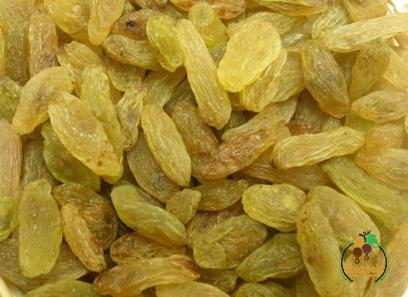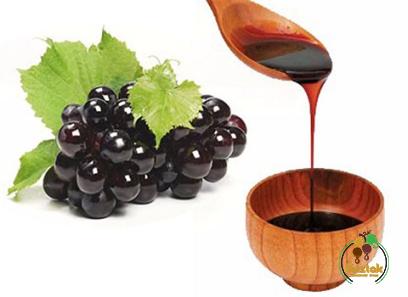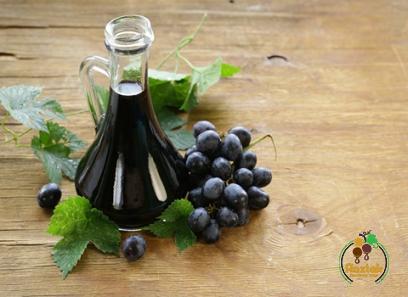Raisins, a popular and versatile snack, are no exception. The debate between organic raisins and regular raisins has intensified, with both camps claiming significant advantages. This article aims to delve into the differences between the two types of raisins and help consumers make an informed choice. Defining Organic and Regular Raisins: Organic raisins are produced using organic farming practices that exclude the use of synthetic fertilizers, pesticides, herbicides, and fungicides. These raisins are grown from grapes that are grown and processed without any genetically modified organisms (GMOs). On the other hand, regular raisins are produced using conventional farming methods, which may involve the use of synthetic inputs and GMOs.

.
 Nutritional Value: When it comes to nutritional value, both organic and regular raisins offer similar benefits. Both contain fiber, vitamins, minerals, and antioxidants. However, some studies suggest that organic raisins may have higher levels of certain nutrients such as antioxidants due to the absence of chemical interventions during growth. Nevertheless, the overall nutritional difference between the two types of raisins is minimal. Health and Safety: One of the primary reasons consumers choose organic raisins is their perceived health benefits. Organic raisins are free from harmful chemical residues, making them a safer option for those concerned about pesticide exposure.
Nutritional Value: When it comes to nutritional value, both organic and regular raisins offer similar benefits. Both contain fiber, vitamins, minerals, and antioxidants. However, some studies suggest that organic raisins may have higher levels of certain nutrients such as antioxidants due to the absence of chemical interventions during growth. Nevertheless, the overall nutritional difference between the two types of raisins is minimal. Health and Safety: One of the primary reasons consumers choose organic raisins is their perceived health benefits. Organic raisins are free from harmful chemical residues, making them a safer option for those concerned about pesticide exposure.
..
 By avoiding synthetic inputs, organic farming methods promote soil and water conservation, reducing environmental pollution and supporting biodiversity. However, it’s worth noting that regular raisins often undergo rigorous testing to ensure that residual pesticide levels are within legal limits, making them generally safe for consumption. Environmental Impact: The organic farming practices used to produce organic raisins have substantial environmental benefits. By avoiding the use of synthetic inputs, organic agriculture helps reduce soil erosion and water contamination. Additionally, organic farming supports biodiversity by preserving the natural habitat for beneficial insects, birds, and wildlife. On the other hand, regular raisin production may contribute to water and soil pollution due to the use of chemicals. However, advancements in conventional farming techniques have led to improved sustainability practices, reducing the environmental impact of regular raisin production. Cost and Availability: Organic raisins generally come with a higher price tag compared to regular raisins.
By avoiding synthetic inputs, organic farming methods promote soil and water conservation, reducing environmental pollution and supporting biodiversity. However, it’s worth noting that regular raisins often undergo rigorous testing to ensure that residual pesticide levels are within legal limits, making them generally safe for consumption. Environmental Impact: The organic farming practices used to produce organic raisins have substantial environmental benefits. By avoiding the use of synthetic inputs, organic agriculture helps reduce soil erosion and water contamination. Additionally, organic farming supports biodiversity by preserving the natural habitat for beneficial insects, birds, and wildlife. On the other hand, regular raisin production may contribute to water and soil pollution due to the use of chemicals. However, advancements in conventional farming techniques have led to improved sustainability practices, reducing the environmental impact of regular raisin production. Cost and Availability: Organic raisins generally come with a higher price tag compared to regular raisins.
…
 This is primarily due to the increased labor and stricter regulations associated with organic farming. However, as consumer demand for organic products grows, the availability and affordability of organic raisins are also improving. Regular raisins, on the other hand, are widely available and tend to be more budget-friendly. Consumers need to weigh the benefits of organic production against their budget when making a purchasing decision. Conclusion: When deciding between organic raisins and regular raisins, it’s essential to consider the nutritional benefits, health and safety aspects, environmental impact, and cost. While organic raisins may have slightly higher nutrient content and boast environmental advantages, regular raisins still provide a nutritious snack option with rigorous safety testing. Ultimately, the choice between the two types of raisins will depend on personal preferences, dietary needs, and budget constraints. By being well-informed about the differences between organic and regular raisins, consumers can make a decision that aligns with their values and health goals, ensuring a satisfying and guilt-free snack experience.
This is primarily due to the increased labor and stricter regulations associated with organic farming. However, as consumer demand for organic products grows, the availability and affordability of organic raisins are also improving. Regular raisins, on the other hand, are widely available and tend to be more budget-friendly. Consumers need to weigh the benefits of organic production against their budget when making a purchasing decision. Conclusion: When deciding between organic raisins and regular raisins, it’s essential to consider the nutritional benefits, health and safety aspects, environmental impact, and cost. While organic raisins may have slightly higher nutrient content and boast environmental advantages, regular raisins still provide a nutritious snack option with rigorous safety testing. Ultimately, the choice between the two types of raisins will depend on personal preferences, dietary needs, and budget constraints. By being well-informed about the differences between organic and regular raisins, consumers can make a decision that aligns with their values and health goals, ensuring a satisfying and guilt-free snack experience.











Your comment submitted.